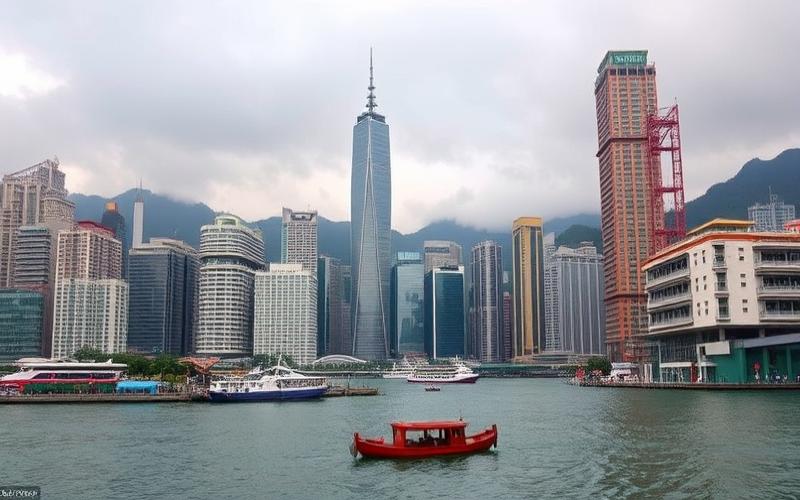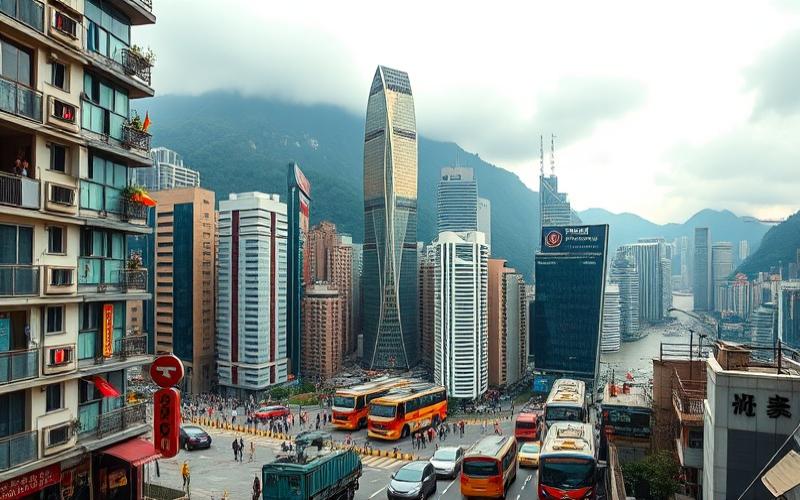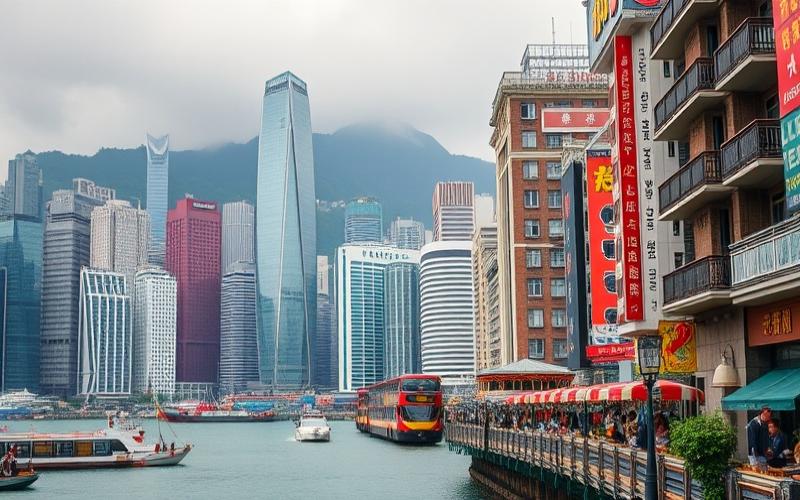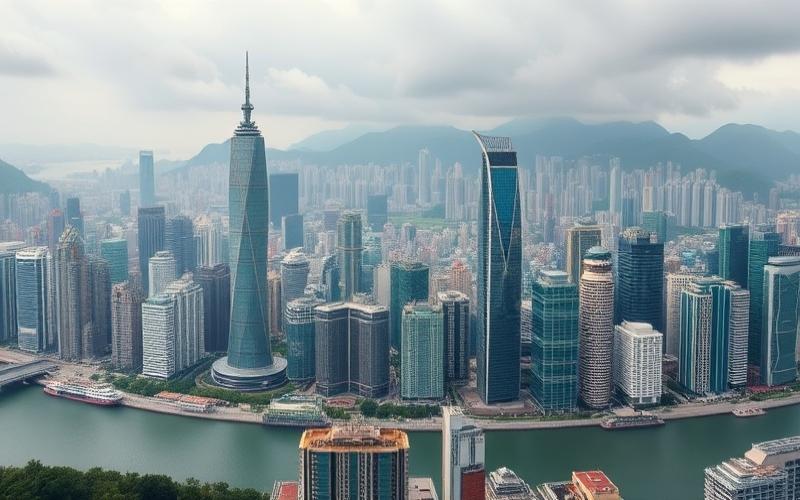
 Published on and written by Cyril Jarnias
Published on and written by Cyril Jarnias
Hong Kong, Asia’s economic hub, attracts numerous entrepreneurs and workers from around the world. However, navigating the local legal system can prove complex. This article will guide you through the essential aspects of Hong Kong labor law, helping you better understand your rights and obligations, whether you’re an employer or employee.
Employment Contracts: The Cornerstone of Employer-Employee Relationships
In Hong Kong, the employment contract is the fundamental document governing the relationship between employer and employee. The Employment Ordinance constitutes the main legal framework for employment contracts and working conditions.
Employment contracts in Hong Kong can be fixed-term or indefinite. Unlike some European countries, there’s no legal distinction between fixed-term and permanent contracts. The contract duration is simply specified in the agreement terms.
A typical employment contract in Hong Kong should include the following elements:
- Name and contact information of employer and employee
- Job description and responsibilities
- Employment start date
- Contract duration (if fixed-term)
- Salary and other benefits
- Working hours
- Probation period (if applicable)
- Termination conditions
An interesting feature of the Hong Kong system is the “continuous contract”. An employee is considered to be under continuous contract if they have worked for the same employer for at least 18 hours per week for 4 consecutive weeks or more. This status grants additional rights, particularly regarding paid leave and severance payments.
Good to know:
In Hong Kong, the law doesn’t require a written contract, but it’s highly recommended to establish one to avoid future disputes. Employers must also provide a detailed pay slip for each payment period.
Social Obligations: A Lighter System Than in Europe
The social security system in Hong Kong is significantly less developed than in many Western countries, resulting in relatively light social charges for employers.
The main social security program is the Mandatory Provident Fund (MPF), a mandatory retirement system. Employers and employees must each contribute 5% of the employee’s salary to the MPF, with a monthly cap of 1,500 HKD for each party. For salaries below 7,100 HKD per month, only the employer contributes.
Beyond the MPF, employers’ social obligations are limited:
- Work accident insurance: mandatory for all employers
- Health insurance: not mandatory but commonly offered as a benefit
- Paid leave: legal minimum of 7 to 14 days per year, depending on seniority
- Maternity leave: 14 weeks paid at 80% of salary
- Paternity leave: 5 paid days
There is no public unemployment or disability insurance system in Hong Kong. The responsibility for these protections largely falls on individuals, although some employers offer supplementary insurance as a benefit.
Good to know:
Although social obligations are lighter than in Europe, many employers in Hong Kong offer additional benefits to attract and retain talent, such as private health insurance, annual bonuses, or extra leave.
Minimum Wage: Basic Protection for Workers
Hong Kong introduced a legal minimum wage relatively recently, in 2011. Since May 1, 2023, the hourly minimum wage has been set at 40 HKD (approximately $4.70). This rate is reviewed every two years by the Minimum Wage Commission.
It’s important to note that this rate applies to most employees, including part-time workers and foreign domestic helpers. However, there are some exceptions, particularly for interns and people working less than 4 hours per day.
The minimum wage in Hong Kong is considerably lower than in many Western countries. This partly reflects the local cost of living, but also the city’s economic philosophy, which traditionally favors a flexible and lightly regulated labor market.
Despite this relatively low rate, many employers in Hong Kong offer salaries significantly above the legal minimum, particularly in competitive sectors like finance, technology, or law.
Good to know:
Although the minimum wage provides basic protection, it’s considered insufficient by many Hong Kong residents, given the city’s high cost of living. Debates about increasing it are frequent.
Average Salaries: A Competitive Labor Market
Hong Kong is known for its attractive salaries, particularly in certain high-end sectors. However, average salaries mask significant disparities between sectors and experience levels.
According to the latest data from Hong Kong’s Census and Statistics Department, the median monthly salary in 2024 was approximately 19,500 HKD (about $2,300). However, this figure varies considerably by sector:
- Finance and insurance: 30,000 HKD and above
- Information technology: 25,000 – 35,000 HKD
- Education: 22,000 – 28,000 HKD
- Retail: 15,000 – 20,000 HKD
- Food and beverage: 12,000 – 18,000 HKD
It’s important to note that the cost of living in Hong Kong is among the highest in the world, particularly regarding housing. Thus, even salaries that may seem high compared to other countries can be quickly absorbed by daily expenses.
Expatriates, particularly those in management positions or specialized sectors, often benefit from compensation packages including additional benefits such as housing allowances, children’s school fees, or annual airfare to return to their home country.
Good to know:
Annual bonuses are common practice in Hong Kong, particularly in the financial sector. They can represent a significant portion of total compensation, sometimes reaching several months’ salary.
Salary Skills: An Evolving Market
Hong Kong’s labor market is dynamic and competitive, with growing demand for certain specific skills. Employers are willing to offer attractive salaries to attract and retain talent in key fields.
Currently, the most sought-after and best-paid skills in Hong Kong include:
- Artificial intelligence and machine learning
- Cybersecurity
- Data analytics
- Fintech
- Agile project management
- Sustainability and ESG (Environmental, Social, Governance)
- Language skills, particularly Mandarin and English
Mandarin proficiency has become particularly valuable in recent years, due to Hong Kong’s increasing integration with mainland China. Professionals capable of navigating between Chinese and Western cultures are highly sought after.
The Hong Kong government has also implemented initiatives to attract talent in strategic fields. For example, the “Technology Talent Admission Scheme” facilitates immigration for qualified professionals in specific technological areas.
Good to know:
Professionals who invest in developing in-demand skills can expect significant salary increases. It’s not uncommon to see increases of 20% or more when changing jobs in the most competitive sectors.
Unions and Workers’ Rights: A Delicate Balance
Hong Kong’s union landscape is unique, reflecting the city’s history and political culture. Although the right to form unions is protected by law, their influence is generally less significant than in many Western countries.
The main law governing unions is the Trade Unions Ordinance. It guarantees workers’ rights to form and join unions, as well as the right to strike. However, there’s no obligation for employers to negotiate collectively with unions.
The main workers’ rights in Hong Kong include:
- Protection against unfair dismissal
- Right to paid leave
- Right to rest breaks and holidays
- Protection against discrimination
- Right to a safe working environment
Hong Kong’s Labour Department plays an important role in protecting workers’ rights. It provides mediation services in case of labor disputes and ensures enforcement of employment laws.
However, in recent years, the political climate in Hong Kong has impacted union activity. Some unions, particularly those perceived as having ties to the pro-democracy movement, have faced increased pressure.
Good to know:
Although unions exist in Hong Kong, their influence is generally more limited than in many Western countries. Salary negotiations and working conditions are often handled more individually between employer and employee.
Conclusion: A Dynamic Labor Market in Constant Evolution
Hong Kong’s labor law reflects the unique nature of this city-state, blending Western and Eastern influences. Its relatively flexible and lightly regulated system has long been considered an asset for attracting international businesses and talent.
However, Hong Kong’s labor market faces new challenges. Increasing integration with mainland China, recent political tensions, and heightened competition from other Asian financial centers like Singapore are pushing Hong Kong to reevaluate and adapt its labor policies.
For employers and employees, it’s crucial to stay informed about developments in Hong Kong labor law. The city continues to offer attractive opportunities, but navigating its unique legal and cultural system requires deep understanding and constant adaptability.
Good to know:
Despite recent challenges, Hong Kong remains a major business hub in Asia. Its strategic position, advantageous tax system, and sophisticated business environment continue to make it an attractive destination for international businesses and professionals.
Disclaimer: The information provided on this website is for informational purposes only and does not constitute financial, legal, or professional advice. We encourage you to consult qualified experts before making any investment, real estate, or expatriation decisions. Although we strive to maintain up-to-date and accurate information, we do not guarantee the completeness, accuracy, or timeliness of the proposed content. As investment and expatriation involve risks, we disclaim any liability for potential losses or damages arising from the use of this site. Your use of this site confirms your acceptance of these terms and your understanding of the associated risks.


















